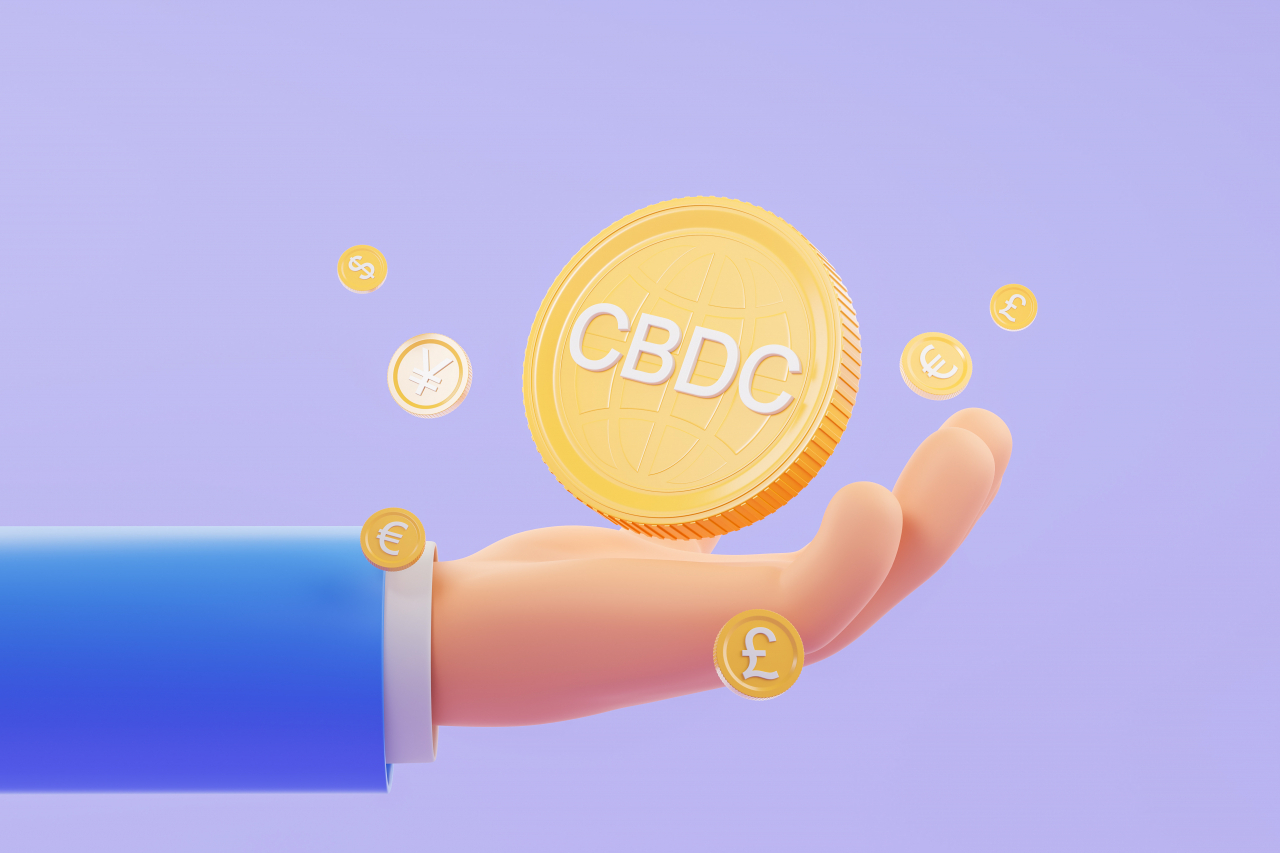[KH Explains] What's at stake in Korea's digital currency push
Rise of stablecoins threatens central banks; privacy concerns remain a challenge
By Im Eun-byelPublished : Dec. 21, 2023 - 16:40

The Bank of Korea is proactively pushing for the introduction of a central bank digital currency to maintain its grip on the sovereign currency amid the continued digital transformation of the finance sector.
The BOK has developed a two-track system for Korea's CBDC: a retail CBDC for individuals and a wholesale CBDC for institutions. It will first test out the wholesale CBDC by having banks issue tokenized deposits to some 100,000 people in the fourth quarter of 2024.
“Digitalization is an undeniable trend and a present reality. Central banks must be proactive and prepared to engage in this evolution,” BOK Governor Rhee Chang-yong said at an international conference in Seoul on Friday, held to discuss regulations for digital currency.
Why is BOK eager to introduce CBDC?
As payment means diversify, central banks could lose control over their countries' sovereign currencies. The rise of stablecoins, a cryptocurrency pegged to another stable currency, is threatening the existence of fiat money -- highlighted by the launch of PayPal’s PYUSD stablecoin in August.
The expansion of stablecoins could pose challenges for managing capital flows and maintaining monetary policy independence, the BOK chief said at last week’s conference.
According to Lee Myong-hwal, a research fellow at the Korea Institute of Finance, the introduction of the wholesale CBDC here has already unfolded to a certain extent, as interbank transactions have become largely digitalized.
As for the adoption of the retail CBDC, a “political value judgement” lies in the motivation, he explained, quoting the words of Stefan Ingves, former governor of Sweden’s central bank, who attended the conference held last week.
“The need to introduce the retail CBDC may not be urgent for the time being. But as we evolve into a cashless society and more diverse means of payment settlement arise, the role of sovereign currency could be questioned,” Lee said.
The BOK further sees “extra costs” in the current payment system. For instance, while consumers may not realize the expenses incurred from credit card payments, human employees are needed to process the payments.
“The BOK does not aim to substitute credit cards with the CBDC, but it is aware there are hidden expenses in the market,” an official from the Bank of Korea said.
Will won’s status rise?
Though some countries such as the Bahamas and Nigeria have already introduced all-purpose CBDCs, no major economy has yet fully adopted them in its system.
According to a Bank for International Settlements report released in July, 24 out of 86 countries worldwide are expected to establish their own CBDC systems by 2030, while more than 100 countries are currently working on the project. The BOK is seen as one of the front-runners in the global CBDC experiment.
While some argue the swift introduction of the CBDC could strengthen the Korean won's value, as the hegemony of the digital currency market has not been established yet, experts remain skeptical.
“The digital currency will still be connected to the real economy. The Korean won is relatively less used in international transactions compared to key currencies,” Lee Seung-duck, an associate professor of economics at Sungkyunkwan University, said.
"The introduction of a new technology, including the CBDC, is unlikely to lead to more use of the Korean won in international settlements. The essence of the upgrade is in the economic power and the status in the international finance market," he said.
Will BOK have full access to data?
While there are concerns about greater government surveillance with the adoption of the CBDC and its traceability, that will depend on how the digital money is mapped out.
For the wholesale CBDC, violations of privacy are not a concern as distribution procedures are similar to that of cash in that the central bank issues the currency and gives it out to banks. While such worries are valid for the retail CBDC, it will depend on the programming, Lee from the KIF pointed out.
"There are benefits to traceability, too. If the CBDC is programmed to share data, the central bank can track down illegal transactions. Of course, a certain level of privacy should be protected as well. It is about finding a balance,” Lee said.







![[Weekender] How DDP emerged as an icon of Seoul](http://res.heraldm.com/phpwas/restmb_idxmake.php?idx=644&simg=/content/image/2024/04/25/20240425050915_0.jpg&u=)



![[KH Explains] No more 'Michael' at Kakao Games](http://res.heraldm.com/phpwas/restmb_idxmake.php?idx=644&simg=/content/image/2024/04/28/20240428050183_0.jpg&u=20240428180321)







![[Herald Interview] Mistakes turn into blessings in street performance, director says](http://res.heraldm.com/phpwas/restmb_idxmake.php?idx=652&simg=/content/image/2024/04/28/20240428050150_0.jpg&u=20240428174656)
